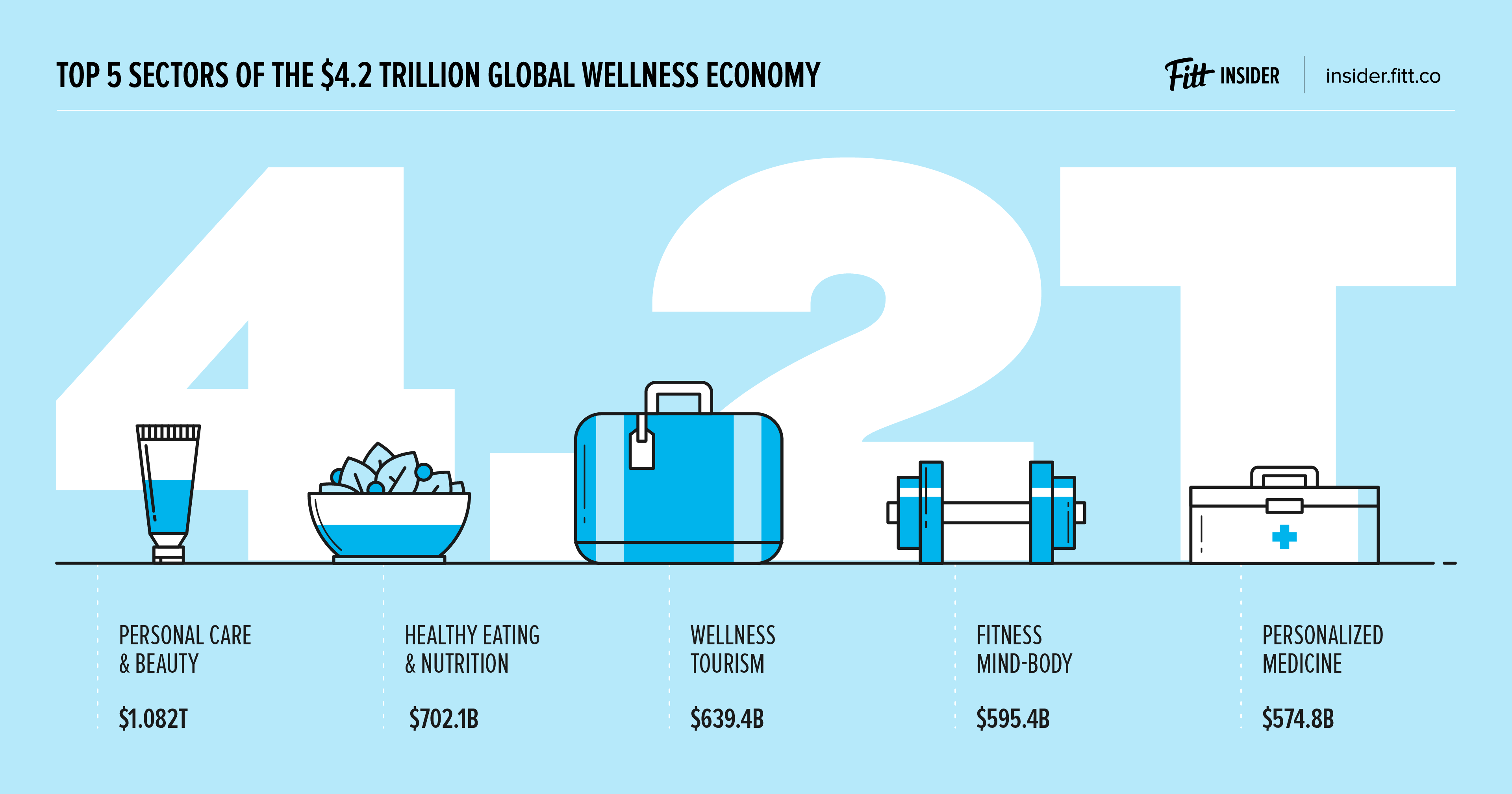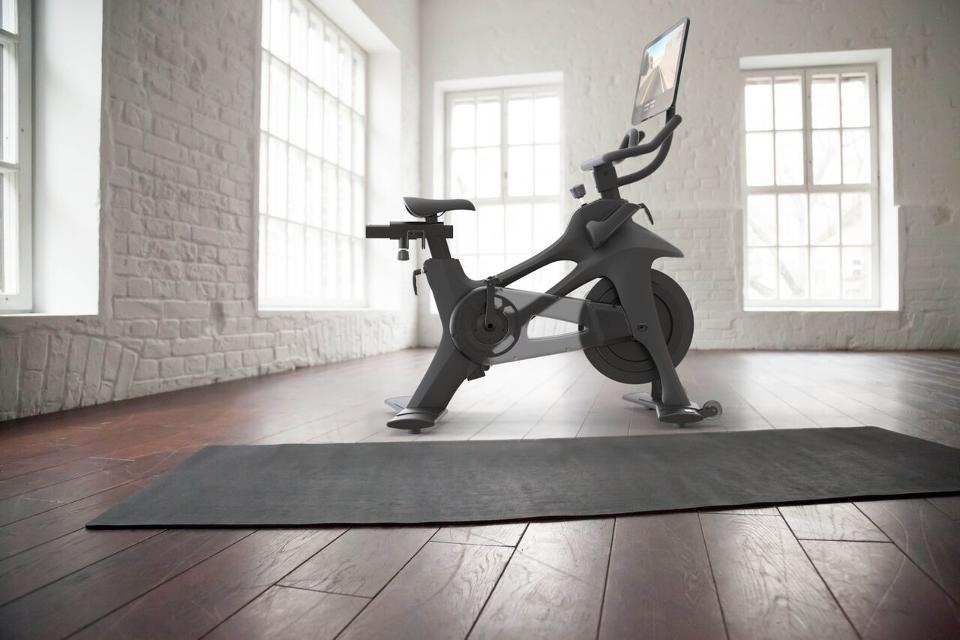Insider Briefings are designed for entrepreneurs, executives, and investors interested in boutique fitness, natural foods, fitness tech, and emerging wellness trends.
Here’s what you need to know today.
Trillion with a T
The global wellness market is now valued at a mindblowing $4.2 trillion. Having grown by 12.8% between 2015 and 2017, the industry now represents 5.3% of global economic output. While wellness continues to be a nebulous concept that’s applied broadly—from fitness studios to DTC vitamin startups—there’s no denying that interest in and spending on wellness is booming.
New figures released by the Global Wellness Institute have identified 10 dominant categories:
- Personal care and beauty: $1.082 trillion
- Healthy eating, nutrition, and weight loss: $702.1 billion
- Wellness tourism: $639.4 billion
- Fitness/mind-body: $595.4 billion
- Preventive and personalized medicine and public health: $574.8 billion
- Traditional and complementary medicine: $359.7 billion
- Wellness real estate: $134.3 billion
- Spa economy: $118.8 billion
- Thermal/mineral springs: $56.2 billion
- Workplace wellness: $47.5 billion
As wellness continues shifting from luxury lifestyle to daily pursuit, expect to see more and more brands throw their hats into the wellness ring.
See you in court
Over the past few weeks, the wellness world has seen a collection of lawsuits involving some of the biggest names in the game. For starters, Peloton is suing Flywheel, claiming that the FLY Anywhere at-home bike and streaming content infringes on its patents. Complicating the matter, the suit alleges a conspiracy of sorts, with financier Michael Milken posing as a would-be investor in Peloton to gain strategic and technical information about the company from CEO John Foley. Peloton and Foley claim that Milken then shared this information with Flywheel Sports, where he has already invested millions of dollars.
And Peloton might have another legal battle brewing. Eric Villency, the designer behind the bikes used by SoulCycle and Peloton, just unveiled his latest creation — a better Peloton. According to Villency, the bike is world-class, combining all the lessons he’s learned while developing other tech-enabled stationary bikes. If Peloton has taken issue with FLY Anywhere, Villency’s announcement is surely on their radar. After all, they’ve already battled Villency in court when his company, VR Optics, sued Peloton for violating a patent they own for “computerized fitness equipment that is designed to simulate, emulate or implement actual race conditions with other users”. A closer look at the patent reveals drawings of exercise bikes with mounted screens that are connected through a digital network.
With Peloton’s valuation ballooning to more than $4B, the turf war for streaming-enabled stationary bikes and high-tech fitness equipment has only just begun.
In other legal news, LaCroix is at the center of a suit that claims the crazy-popular sparkling water contains cancer-causing chemicals. While Chicago-based law firm Beaumont Costales says LaCroix contains artificial ingredients—including limonene and linalool, which appear in cockroach insecticide—the suit appears to be a bit of a stretch. It seems as though the crux of the lawsuit really comes down to semantics: the FDA’s definition of “all-natural” is ambiguous — LaCroix is using the word liberally and Beaumont Costales is taking issue with that. While the court case has yet to play out, millennials need not fret — Popular Science has declared LaCroix safe to drink after all.
Want to get in touch? Email anthony@fitt.co with tips, questions, or to continue the conversation.





